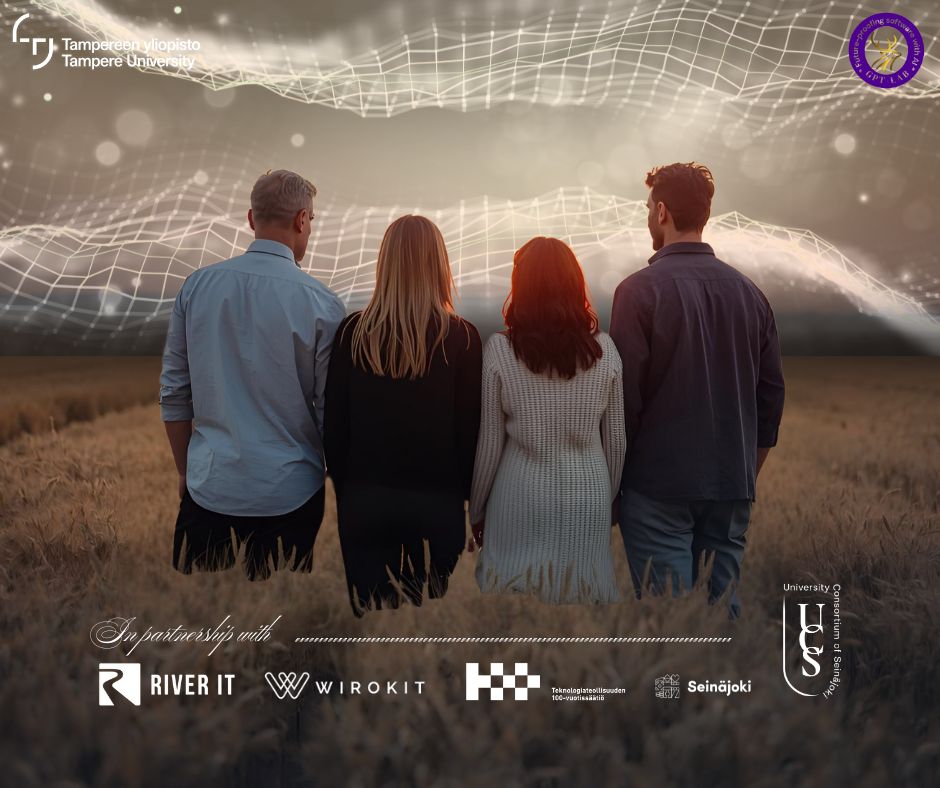
The pace of AI advances is staggering – even we researchers struggle to stay fully up to date. Yet the AI transformation is no longer theoretical: it is already reshaping industries and everyday work. Studies consistently show measurable benefits: professionals using AI complete their tasks up to 25% faster while quality improves at the same time. AI promises to make us faster, better, and more efficient. However, while tempting, these benefits are not reaped automatically. Value comes only when people understand both how and when to use these tools.
Why study AI?
To truly benefit from AI, employees, companies, and organizations must learn how AI works, what it can and what it cannot (yet) do, and how to interpret its outputs critically. Unguided experimentation won’t cut it. Structured, pedagogically grounded learning remains one of the best ways to build lasting skills. Universities have honed this craft of teaching and learning for a millennium, and it remains the surest way to acquire new skills that endure the test of time.
When people talk about AI today, they usually mean large language models. Systems such as ChatGPT are trained to predict the next most probable word in a sentence. The operating principle is simple, but the impact is anything but. It has turned out that predicting words unlocks surprisingly broad and useful AI reasoning and communication abilities. Understanding this, and what such a word predictor can know, helps demystify AI and turns it from something mystical into a tool that can be systematically applied

GeTeK – building AI expertise in South Ostrobothnia
Since autumn 2025, Tampere University has offered university-level studies in generative AI at the University Consortium of Seinäjoki. The first students started in August, and the next application round for studies beginning in January is now open. GeTeK is GPT-Lab’s flagship education project in South Ostrobothnia and is designed to grow regional AI competence and strengthen its competitiveness.
The GeTeK study package is tailored to the needs of local companies, co-created with partners such as our main partner River IT, and other partners Wirokit and the Technology Industries of Finland Centennial Foundation. The program consists of two 20-credit modules – both university-level, practice-oriented, and designed for different audiences:
- Generative Artificial Intelligence: Users, Language and Interaction – for knowledge workers who want to apply AI in everyday tasks such as information generation and processing, communication, marketing, or administration.
- Generative Artificial Intelligence: Applications – for software professionals who want to deepen their technical expertise and learn how to build AI-integrated software systems.
Studies can be taken as full modules or students may choose individual courses. The content varies from understanding the logic of language models to practical implementation, AI legislation, ethics, and human-AI interaction design. Employers are encouraged to support participation; we believe that such investment pays back quickly through productivity and new capabilities. GeTek is already building new connections between research, education, and local business, strengthening foundations for long-term regional impact of AI.
Local support, tangible results
Unlike typical online modules, GeTeK students receive local, in-person guidance and study groups at the Seinäjoki University Consortium. Experience from our earlier IT adult and continuous learning offerings shows a clear pattern: students who attend sessions, use guidance, and form study groups complete their studies. We, postdoctoral research fellow Jussi Rasku and research assistant Virve Yli-Savola from Tampere University, support students in study planning, course selection, and personal skills development.
We have seen how learning together builds confidence and turns abstract ideas into practice. The local community matters: peer discussions and mentoring help students translate theory into workflows and habits. This mix of regional presence and university-level content is what makes GeTeK special. In addition, South Ostrobothnia has a long tradition of entrepreneurship and practical ingenuity – precisely the qualities that are needed to make AI adoption have great impact. Only by staying grounded in regional needs, GeTeK can ultimately contribute to Finland’s broader innovation ecosystem.
The future is made now
Public debate often focuses on AI’s risks and disruptions. We feel that the greater risk is missing the opportunity. Generative AI doesn’t replace the human element; it amplifies it. It frees time for creativity, decision-making, and interaction, the things machines can’t replicate. Those who embrace these tools early position themselves at the forefront of transformation.
As writer William Gibson noted, “The future is already here – it’s just not evenly distributed.” With GeTeK, Tampere University and GPT-Lab research group are making sure that the future of AI reaches South Ostrobothnia too. Our goal is to make AI serve people and businesses across the region through understanding, upskilling, and local support.


